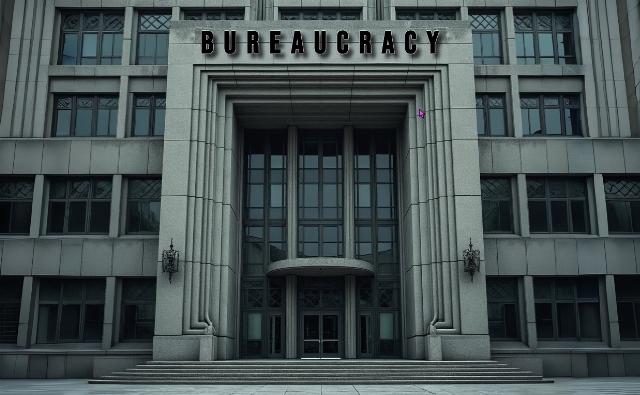The Constitution and the administrative state
As the news coverage of Donald Trump’s cabinet selections has shouldered aside news coverage about Democrat loser hysteria, a silent Tenth Amendment puzzle is haunting the Trump true believer. This apprehension arises as department heads are appointed to the bureaucracy without mention, observation, or apparent awareness that much of what the administrative agencies do is blatantly unconstitutional.
This is nicely illustrated in a recent essay in which the author states, “Unfortunately, and despite the first Trump Administration’s efforts, today the reality remains that the administrative state wields broad and extraconstitutional power without sufficient accountability or guardrails….”
That quote immediately calls for two critically important observations: (1) Under the Tenth Amendment of the US Constitution, the term “extraconstitutional” simply means “unconstitutional,” and (2) an unconstitutional law cannot have its constitutionality restored by “sufficient accountability or guardrails.”

Image made using AI.
Those two observations are not political philosophy or legal theory. They are straightforward principles of US constitutional law that every schoolchild should be but is not taught. They are not taught because they invalidate the bulk of federal law.
Those two observations arise from the 1935 US Supreme Court decision in Schechter Poultry Corp. v. United States, 295 U.S. 495. The reader can read numerous explanations about the case’s import simply by typing its name into a search engine.
Boiled down to its essence and ignoring a mountain of detail regarding the political setting behind the case, the facts and law in Schechter are simple:
(1) Schechter Poultry Corporation was convicted of a crime.
(2) The crime was created by an administrative regulation.
(3) Congress passed a law authorizing the administrative regulation.
(4) The Supreme Court unanimously held in Schechter that Congress had unconstitutionally delegated legislative power.
The Supreme Court decision in Schechter is easy to understand because of its simplicity. The decision flows from two components of the US Constitution: (1) Article I Section 1 and (2) the Tenth Amendment.
Article 1 Section 1 states, “All legislative Powers herein granted shall be vested in a Congress of the United States, which shall consist of a Senate and House of Representatives.”
The most important word of that passage is the first word: “All.” There is no legislative power assigned anywhere else in the federal government. In particular, the bureaucracy has no legislative power.
The Tenth Amendment states, “The powers not delegated to the United States by the Constitution, nor prohibited by it to the States, are reserved to the States respectively, or to the people.”
Hence, the federal government possesses only those powers expressly specified or necessarily implied in the Constitution. The Constitution does not give Congress the power to delegate any of its legislative power to the bureaucracy.
So, the Schechter decision is very simple and very obvious. In the federal government, only Congress possesses any law-making power. In particular, the bureaucracy possesses no law-making power. It has the authority to create rules to govern how it implements its assigned responsibilities but cannot make regulations binding or penalizing Americans. Therefore, the administrative crime of which Schechter was convicted was an invalid law.
Therefore, explicitly stated, the silent Tenth Amendment puzzle is twofold: (1) Does Donald Trump understand that the bulk of the Federal Administrative Code is unconstitutional? And (2) does he intend to do anything about it?
This silent Tenth Amendment puzzle remains unacknowledged and haunting.





